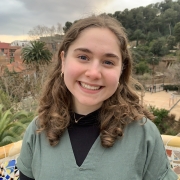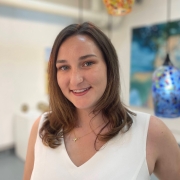Knauss legislative fellowships in Congress help build careers — and they're fun and educational. See our video and fact sheet for details.
Current Post Graduate Fellows
Science Management and Policy Internship

Fellowship at:
Maryland Sea Grant CollegeCool Facts:
Caldonia (Cally) graduated from the University of Delaware in 2023 with an Honors B.S. in Environmental Science and a minor in Marine Science. While there, she conducted research on a wide variety of topics related to climate change, coastal science, and plant ecology. She fell in love with wetlands specifically while studying saltmarsh grasses in the Delaware Great Marsh Preserve. Sharing her passion for coastal ecology and conservation through various campus leadership positions inspired her to continue pursuing opportunities in environmental outreach.Maryland Law and Policy Fellowship

Fellowship at:
Agriculture Law Education Initiative and Maryland Sea Grant CollegeCool Facts:
Kerry McClaughry is the ALEI and Maryland Sea Grant 2024-2025 Law and Policy Fellow. She recently graduated from the University of Maryland Francis King Carey School of Law where she earned a Certificate in Environmental Law. She is excited to continue to work on projects focused on protecting the Chesapeake Bay and build on past Fellows work to expand the voices being heard on environmental policy issues.State Science Policy Fellowship




